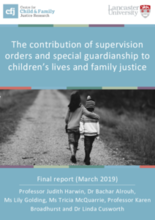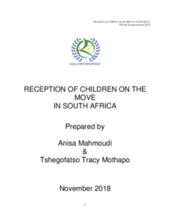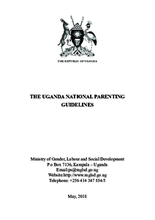Displaying 21 - 30 of 112
This report is about the use of ‘family orders’ to support family reunification and placement with family and friends as outcomes of S31 care and supervision proceedings brought under the UK Children Act 1989. The over-arching aim of this study is to understand the opportunities, challenges and outcomes of these orders, and their use at national and regional level.
The aims of this study were to systematically evaluate and comparatively analyse the mental health status of left‐behind children (LBC) in China and to provide a scientific basis for mental intervention and healthy education for LBC.
The aim of this article is to develop proposals for the organization of a legal and regulatory framework in Russia, in accordance with the social and psychological needs of guardianship families and to identify the possibilities of the Ombudsman for the Rights of the Child to protect the rights of minors raised in guardianship families.
This article investigates the colonialist definitions of the terms “orphan” and “adoption”, contrasting them with how the traditional practice of child circulation in Fiji cared for orphaned children.
Although the extant literature provides rough estimates of the number and characteristics of children living in most care arrangements, research on kinship probate guardianship is especially scarce. This article focuses on kinship probate guardianship in an effort to build the literature on this understudied population.
This report from Kids Empowerment reviews the reception of children on the move in South Africa.
This country care review includes the care related Concluding Observations adopted by the Committee on the Rights of the Child and the Committee on the Rights of Persons with Disabilities.
This article reviews developments in the Australian NSW child protection system which aim to reduce the number of children in state care.
This chapter looks at what the international law instruments recommend regarding the appointment of legal guardians. It provides an audit of the instruments which are applicable to the regulation of the appointment of legal guardians for children both at the global and regional levels.
These Guidelines are for all persons taking care of children. The goal of these Guidelines is to empower parents, the family and community structures to effectively nurture children so that they can realise their full potential.




